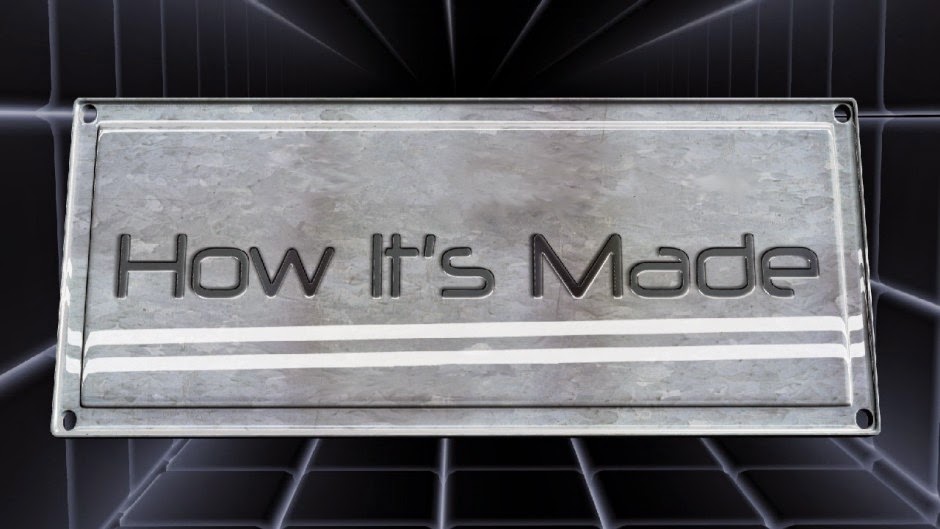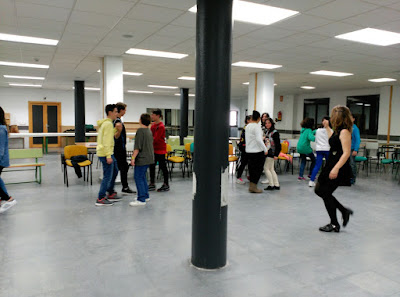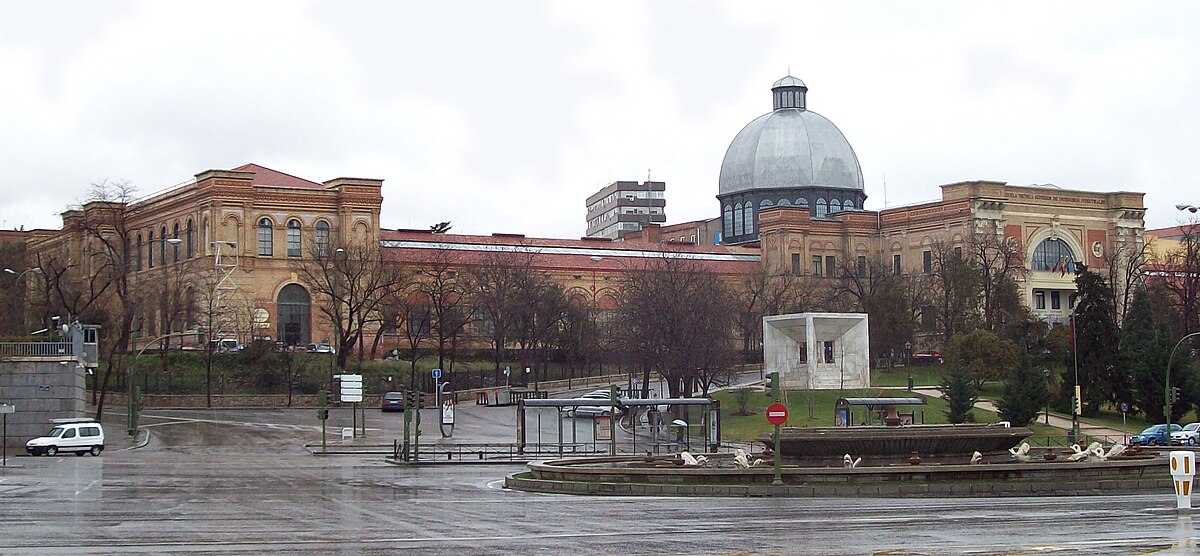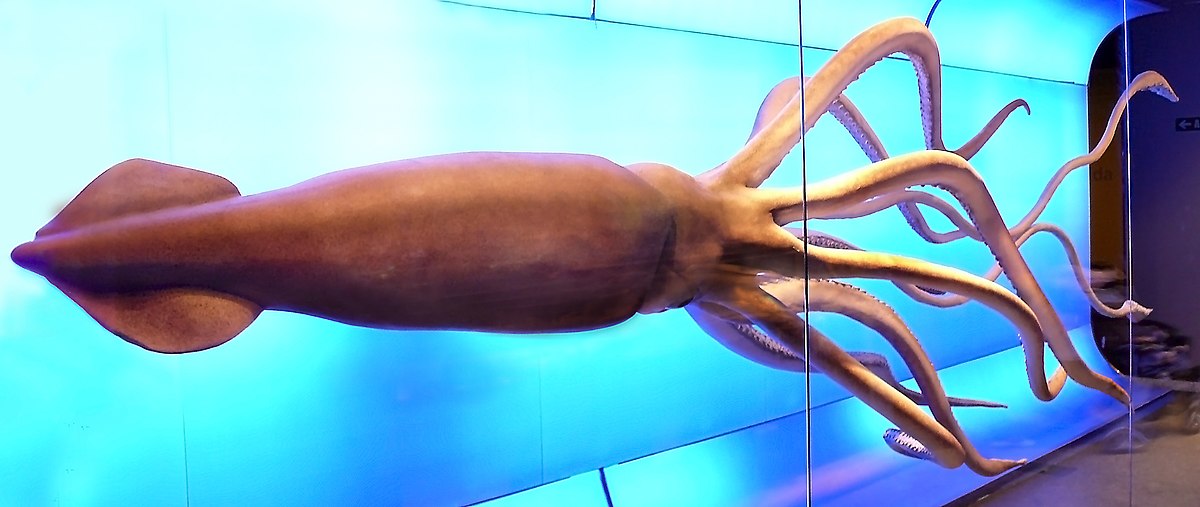These two videos are a good summary:
THE BLOG OF THE BILINGUAL PROGRAM AT IES LUIS DE GÓNGORA IN TORREJÓN DE ARDOZ AND LOECHES. NEWS ABOUT THE PROGRAM AND RESOURCES FOR LEARNING ENGLISH.
WELCOME!
WELCOME!
This blog has existed for some years of bilingual teaching in our secondary school. Its purpose is to provide a space for language learning and to show the accomplishments of our students. News and useful resources will be posted periodically.Este blog ha existido durante varios años de enseñanza bilingüe en nuestro instituto. Su objetivo es el de ofrecer un espacio para aprender el idioma y mostrar los logros de nuestros alumnos. Noticias y recursos útiles serán publicados periodicamente.
Monday, 19 December 2016
Human body, Electricity and Electronics
The P.E. and Technology departments have worked together to study how our body can be studied as an electrical machine and how Robotics can interact with the nervous system.
These two videos are a good summary:
These two videos are a good summary:
Friday, 2 December 2016
ENDURANCE 2 ESO
ENDURANCE: Training methods
Endurance Circuit
Ropes
Military course
Friday, 25 November 2016
GYMNASTICS 2 ESO
Balances: one foot, hands and hand&foot
Inverted balances: Head-stand, hand-stand, cartwheel and round off
Somersault: forward and backward
Friday, 18 November 2016
How It's Made
"How It's Made" is a
documentary television series. It shows how
common, everyday items (including foodstuffs like bubblegum,
industrial products such as engines, musical instruments such as
guitars, and sporting goods such as snowboards) are manufactured.
There is a Youtube
channel about it. We strongly recommend you to visit it and watch as
many videos as you can. You will learn a lot of things about
technology and your vocabulary will become wider.
Click here to visit
the Youtube channel.
Tuesday, 8 November 2016
Ghost Stories
To get the students into the Halloween spirit, we shared stories about nothing other than Spirits. Some of these tales left the students with questions. Some they couldn't believe.
But here is one story that left a chill in the room...
The Story of the Photos from the Forest
During one long weekend, three friends decided to go camping in the forest that was about an hour drive from their town. They had this spot in the woods where they loved to sleep because it was quiet and calm, away from other people. They went camping for four days and three nights. Each day, they went hiking and relaxed in the shade, and at night, they slept in a cozy tent. One of the friends had brought an old film camera for them to take photos of the nature they saw, and after she returned from the trip with her friends, she had the roll of film developed.
Flipping through the photos, she saw lovely pictures of the countryside and of her smiling friends, but then she came across a photo that made chills run down her spine. There was a picture of her sleeping, but it couldn't have been taken by one of her friends because they were also in the picture, asleep beside her.
Turning through the pictures more hurriedly, the girl found three mysterious photos, one taken from each night that the friends had camped in the woods. Each showed the three of them sleeping.
Who had taken these photos? How could anyone have done so without waking them? And why? Why take three photos of three sleeping friends?
Sunday, 6 November 2016
Experiments about density
Some students of I2A have done, at home, an experiment about density. They have studied what happens when some objects are immersed in water:
Coke experiment:
A) Normal coke sinks
A) Normal coke sinks
B) Zero coke floats between water and normal coke.
Conclusions --> Normal coke is denser than water because it has sugar. Zero coke doesn't have sugar, so it is less dense than normal coke.
Rainbow experiment:
A) Honey is at the bottom of all liquids; syrup is on top of honey; water is on top of syrup; sunflower oil is under olive oil; olive oil is under alcohol; alcohol is on top of all liquids.
B) They have their own densities and it doesn´t matter the order to add the liquids into the recipient.
Conclusions --> Alcohol is on top because it has the lowest density; honey is at the bottom because it has the highest density; syrup is under water because it is denser; olive oil is on top of water because it is less dense.
Sunday, 30 October 2016
The Fifth of November
Remember, remember!
The fifth of November,
The Gunpowder treason and plot;
I see no reason
Why the Gunpowder treason
Should ever be forgot!
Guy Fawkes and his companions
Did the scheme contrive,
To blow the King and Parliament
All up alive.
Threescore barrels, laid below,
To prove old England's overthrow.
But, by God's providence, him they catch,
With a dark lantern, lighting a match!
A stick and a stake
For King James's sake!
If you won't give me one,
I'll take two,
The better for me,
And the worse for you.
A rope, a rope, to hang the Pope,
A penn'orth of cheese to choke him,
A pint of beer to wash it down,
And a jolly good fire to burn him.
Holloa, boys! holloa, boys! make the bells ring!
Holloa, boys! holloa boys! God save the King!
Hip, hip, hooor-r-r-ray!
Sunday, 23 October 2016
The History of Halloween
Friday, 17 June 2016
Thursday, 16 June 2016
Visiting the "Biblioteca Nacional"
The Biblioteca Nacional is the main information and document centre on Spanish and Ibero-American written, graphic and audiovisual culture. It receives and stores copies of all the books published in Spain. Its collections include all kinds of material and its holdings are largely enriched through acquisitions: purchase, copyright, donation and exchange.
Our students of Loeches have visited it and have spent a nice time:
Wednesday, 15 June 2016
"Aulas oro" contest
The group of 1ºA of Loeches has won the "Aulas Oro" contest. The prize has been visiting the "Museo de Ciencias de Alcobendas" where they have enjoyed the whole morning. These are some pictures of their visit:
Friday, 27 May 2016
MEET THE TEACHERS
Let's play a game about pictures. The only thing you have to do is guessing which teacher of Loeches matches each picture. Take your chance and good luck.
Friday, 13 May 2016
Khan Academy
Khan Academy is a non-profit educational organization created in 2006 by educator Salman Khan to provide "a free, world-class education for anyone, anywhere."
Its website features thousands of educational resources, including a personalized learning dashboard, over 100,000 practice problems, and over 6,000 micro lectures via video tutorials stored on YouTube teaching mathematics, history, healthcare, medicine, finance, physics, chemistry, biology, astronomy, cosmology, American civics, art history, economics, music, and computer science. All resources are available for free to anyone around the world.
Khan Academy web page
Khan Academy Youtube channel
Its website features thousands of educational resources, including a personalized learning dashboard, over 100,000 practice problems, and over 6,000 micro lectures via video tutorials stored on YouTube teaching mathematics, history, healthcare, medicine, finance, physics, chemistry, biology, astronomy, cosmology, American civics, art history, economics, music, and computer science. All resources are available for free to anyone around the world.
Khan Academy web page
Khan Academy Youtube channel
Thursday, 28 April 2016
The Shakespeare Scratch (II)
The bilingual groups of Loeches have been working on a special project. It has been made using Scratch and it is related to the 400th anniversary of William Shakespeare's death.
These are their programs -->
These are their programs -->
Monday, 25 April 2016
I3P ADS
Hi there!
I3P students are trying to sell his incredible and miraculous product. If you have smelly feet, buy it. If you get lost and don't have anything to eat, be sure you've taken it with you.
Cheap, affordable and easy consuming. Guess its name, don't ever forget it and buy lots of it.
I3P students are trying to sell his incredible and miraculous product. If you have smelly feet, buy it. If you get lost and don't have anything to eat, be sure you've taken it with you.
Cheap, affordable and easy consuming. Guess its name, don't ever forget it and buy lots of it.
Thursday, 21 April 2016
The Shakespeare Scratch
This week marks the 400th anniversary of William Shakespeare's death. Our bilingual groups have been working on a special Scratch project in their technology class. Check out some of their work!
This is Iván's (I1F) scratch:
This is Laura and Jorge's (I1F) scratch:
This is Noelia and Mario's (I1A) scratch:
This is Iván's (I1F) scratch:
This is Laura and Jorge's (I1F) scratch:
This is Noelia and Mario's (I1A) scratch:
Tuesday, 19 April 2016
Shakespeare 400th anniversary
The bilingual groups attended to a general presentation about Shakespeare's life and work. The main points that our assintant teacher, Tim, talked were:
- William Shakespeare grew up in a rather important family. His father was influential as an alderman and his mother was the daughter of a wealthy landowner.
- He never received a complete education, but he spent most of his free time reading, writing and acting.
- There are a lot of things we don't know about Shakespeare, but we can hypothesize about parts of his life based on his writings.
- He became very wealthy from the work he did, and bought property in both Stratford-upon-Avon and London.
- Other than his famous stories, he also invented more than 1,700 words by combining words, turning verbs into adjectives, changing nouns into verbs and using many other techniques.
Monday, 4 April 2016
Saint Patrick's Day 2016
Saint Patrick's Day in SIES Luis de Gongora (Loeches)
On March 11, "Irish Treble", an Irish dancing group, together with a folk music band, came to teach us how to dance. They want to spread Irish culture through music and dance, that is why they visit schools showing their performance. They were also invited to the celebration of St. Patrick's Day in Madrid on March 13. They did their best to get us dancing, and some of our students did pretty well. Others... Have a look!!
"Irish Treble" also visited Torrejón on March 16:
"Irish Treble" also visited Torrejón on March 16:
Sunday, 3 April 2016
Visiting the Museum of Natural Sciences in Madrid
Our students have visited the Museum of Natural Sciences in Madrid.
The museum has over 6 million specimens in its collections, and this makes it
one of the main reference centres for not only Spanish fauna, but also
that of other Mediterranean areas. It also offers a journey back through time via collections with centuries
of history. Spectacular specimens can be viewed, such as:
By José-Manuel Benito Álvarez (España) —> Locutus Borg - Own work, Public Domain, https://commons.wikimedia.org/w/index.php?curid=1899383
By José-Manuel Benito Álvarez (España) —> Locutus Borg - Own work, Public Domain, https://commons.wikimedia.org/w/index.php?curid=1932235
By Xauxa Håkan Svensson - Own work, CC BY-SA 3.0, https://commons.wikimedia.org/w/index.php?curid=12888413
By José-Manuel Benito Álvarez (España) —> Locutus Borg - Own work, Public Domain, https://commons.wikimedia.org/w/index.php?curid=1932499
By José-Manuel Benito Álvarez (España) —> Locutus Borg - Own work, Public Domain, https://commons.wikimedia.org/w/index.php?curid=1932633
By José-Manuel Benito Álvarez (España) —> Locutus Borg - Own work, Public Domain, https://commons.wikimedia.org/w/index.php?curid=1932480
Subscribe to:
Comments (Atom)

















































